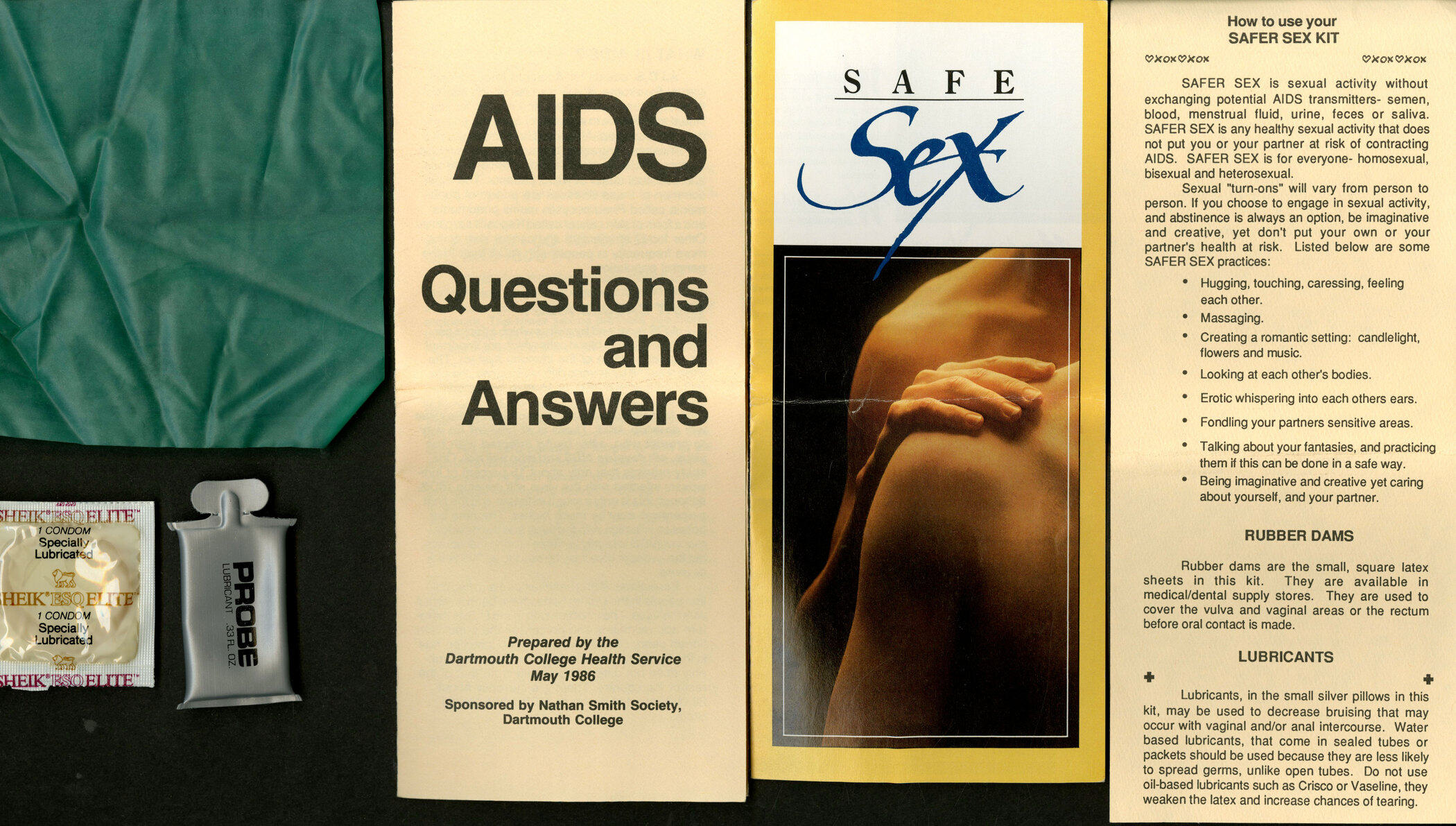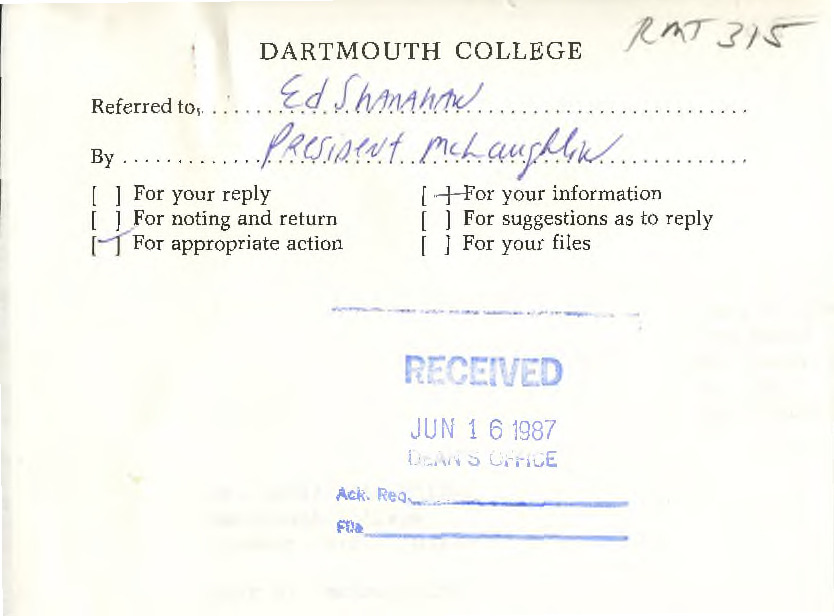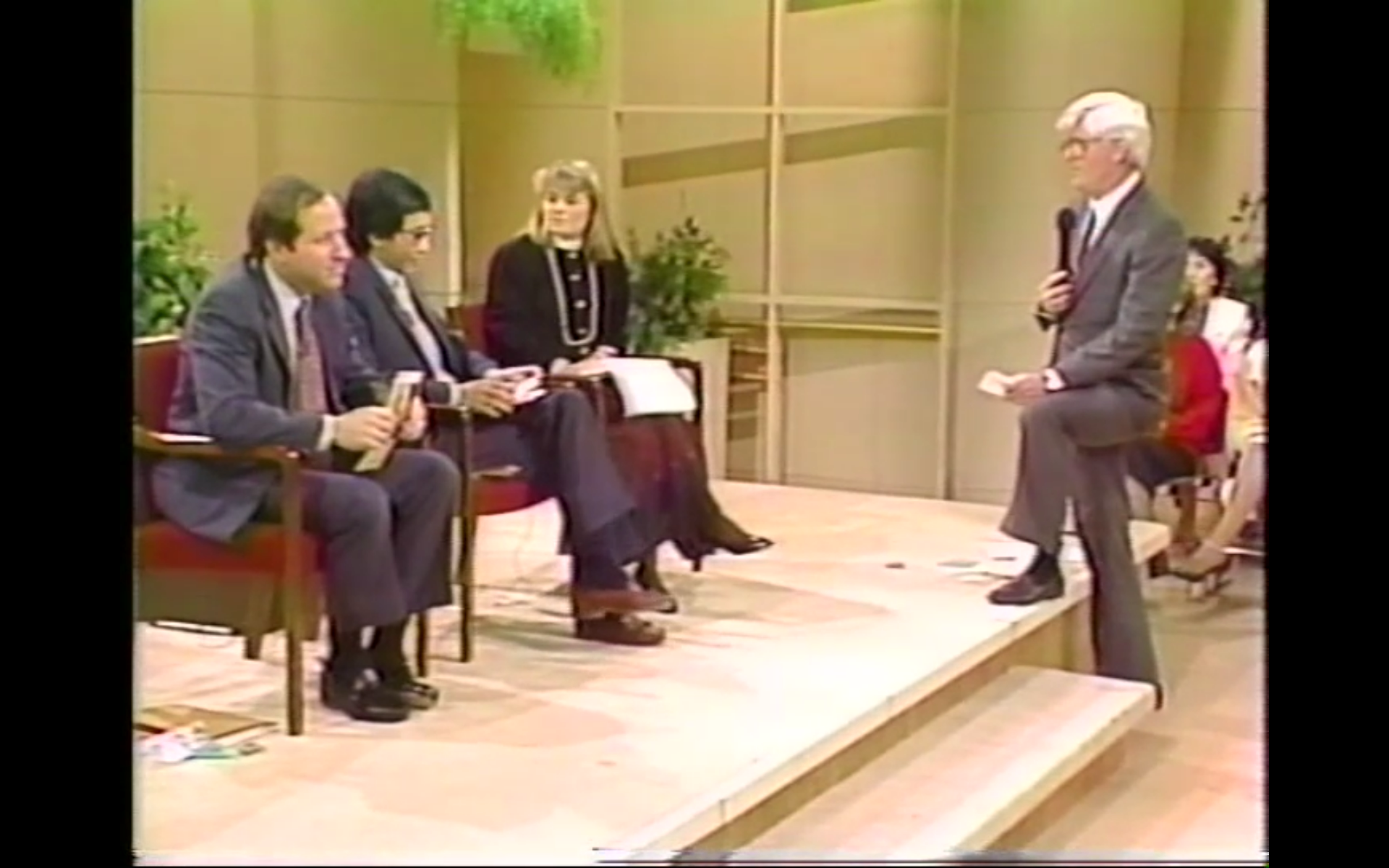Safer Sex Kits
In response to both the growing concern of AIDS, as well as a lack of accurate knowledge on safer sex practices, Beverlie Conant Sloane came up with a plan to engage the campus. Under her guidance, the office of Health Education put together the Safer Sex Kit to make both information about AIDS and safe sex, as well as protection, more accessible to students. Dick’s House reported that 200-300 students voluntarily picked up kits when they were made available during registration for the 1987 winter term.
The kits contained two pamphlets – “AIDS: Questions and Answers” was authored by the Health Service and had already been distributed to student mailboxes the previous fall. A second pamphlet, entitled “Safe Sex,” was created by the ACHA and categorized sexual practices into “safe,” “risky,” or “dangerous” with respect to AIDS and STD transmission. The kits also contained a condom, a packet of spermicidal lubricant, and a dental dam.
Only a few weeks after the kits were made available, the Dartmouth Review published a front-page story entitled “Dartmouth Wants Perversity in the Name of Diversity.” The article accused the administration and health service of “condoning bizarre sexual practices,” “subsidizing sex,” and “approving [a] sodomy manual.” As part of the article, a Review reporter had phoned Dick’s House pretending to have a pregnancy scare, then published the responding nurse’s quotes out of context. In a memo from Jack Turco to Dean Shanahan responding to the article, Dr. Turco acknowledged the Review’s incendiary tactics and doubled down on the Safer Sex Kits:
“In retrospect, if we had a chance to do it all over again, I honestly do not think I would suggest proceeding any differently… we are not talking about unimportant issues, kinky sex, or sexual preference. We are talking about deadly illnesses… I realize that this article was constructed to create controversy and to try to embarrass individuals at the College.”
Dr. Jack Turco
The Review article was picked up by Gregory Fossedal – one of the founders of the paper – and reiterated in an editorial in the New York Post. “Dartmouth’s Sex Kit Shocker” was nationally syndicated, creating a national-scale media controversy for the College. Letters and phone calls from alumni, parents of students, and people with no affiliation to the College came pouring in. Letters ranged from thoughtful moral criticisms of sex before marriage to rambling, venomous tirades. Part of this controversy was because Dartmouth was the first among its peer institutions to offer any kit of such kind. Many of the calls were simply curious or confused. No matter the query, Dr. Turco – who handled most of the correspondence – tactfully responded by reiterating that the kits were a “medical, not a moral statement.”3
The media firestorm culminated in appearances on the Today Show and Donahue, both widely watched daytime talk shows, in late February 1987. On Donahue, the ‘medical vs. moral’ debate played out with Jack Turco and Cuong Do ’88, an intern at Dick’s House and head of the Nathan Smith Society representing the Health Education office. Debbie Stone ’87, editor-in-chief of the Review, represented the conservative perspective.
"This isn't a medical brochure. This is a slick advertisement to engage in perverse activities."
Stone accused the College of neglecting moral education in the Safe Sex materials. Her particular grievance was with the photographs depicted in the ACHA brochure. She argued on Donahue, “This isn’t a medical brochure. This is a slick advertisement to engage in perverse activities.” She also was concerned over the omission of abstinence as the safest sex practice.
Both Dr. Turco and Do responded by reiterating that AIDS educational materials worked best when they were explicit and precise, and that morality was not a priority in an emergent medical situation. Do later reflected on his experience defending the Safer Sex kit in an oral history interview, saying, "how can you argue against educating students and providing more information to people, especially when you’re on a college campus, right?" 4
Most of the show’s audience seemed to agree with Do and Dr. Turco. Addressing Stone, one audience member pointed out, “If you don’t know morality by when you go to college, the pamphlet can’t help you.”Public opinion shifted for the Safe Sex kit after Donahue aired. In the weeks after the show, Dick’s House fielded dozens of calls per day. Some were critical, but most were coming from parents, educators, and health professionals who were impressed with Dr. Turco and Do's performance on the show and wanted to know more about the kits. Just as many audience members on Donahue had expressed, people were excited about the kits as a form of education and protection against the growing AIDS epidemic.
_______________________
3 Turco, Jack. “Letter to Raymond Davis,” 1987. DA-8, Box 7482, “Health Education Safe Sex Kits Dean’s Subject Files 86-87” Dartmouth College, Dean of the College records. Rauner Special Collections Library, Hanover, NH.
4 Do, Cuong. “Oral History Interview with Cuong Do.”16 August 2017. DOH-547, Dartmouth Vietnam Project, Rauner Special Collections Library, Hanover, NH.
From the Archives
Click on an image to access the full document, audio-visual components, and/or metadata associated with that item.
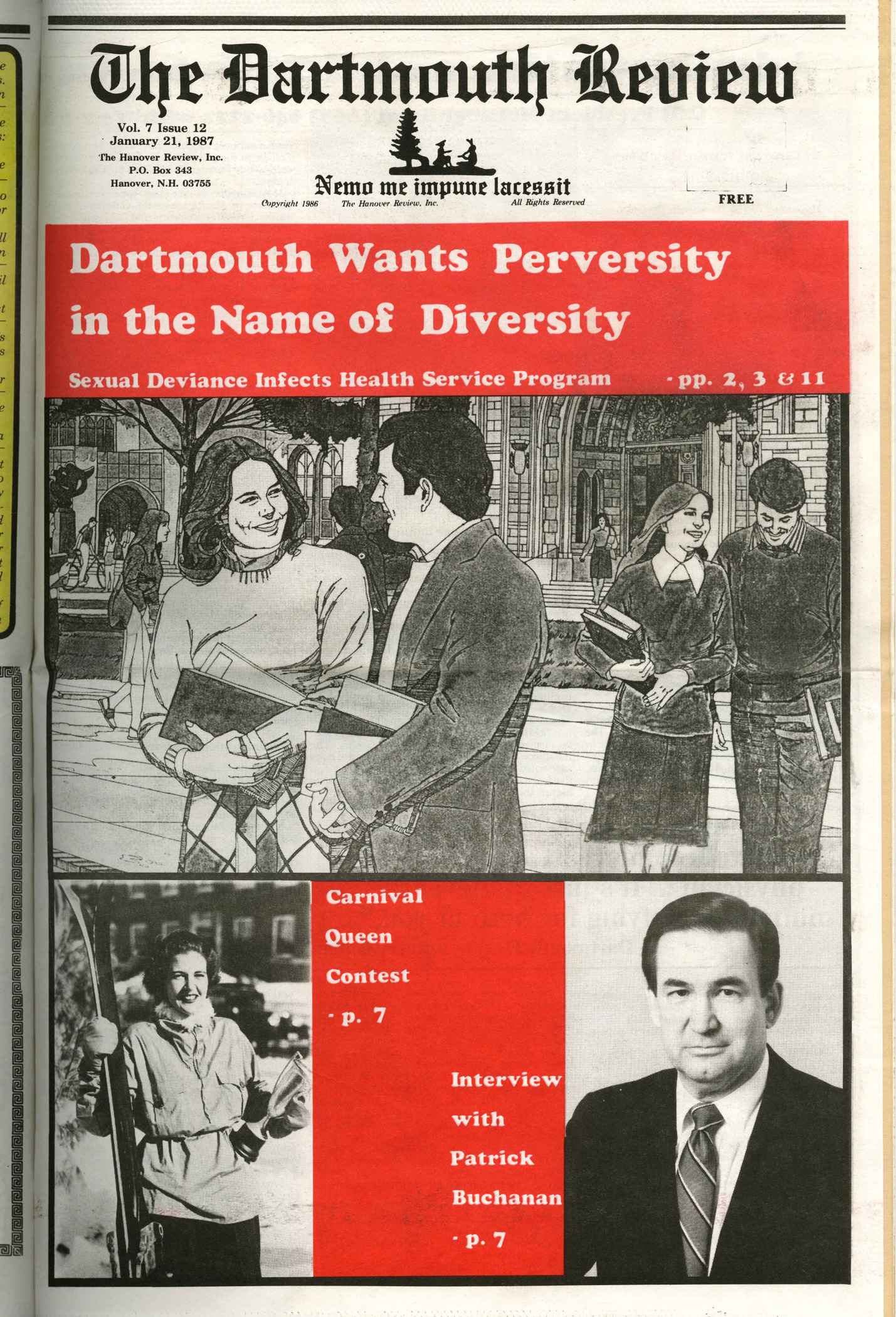
The cover story of this issue of The Dartmouth Review accused the administration and Health Service of 'condoning bizarre sexual practices' with the Safer Sex kit.
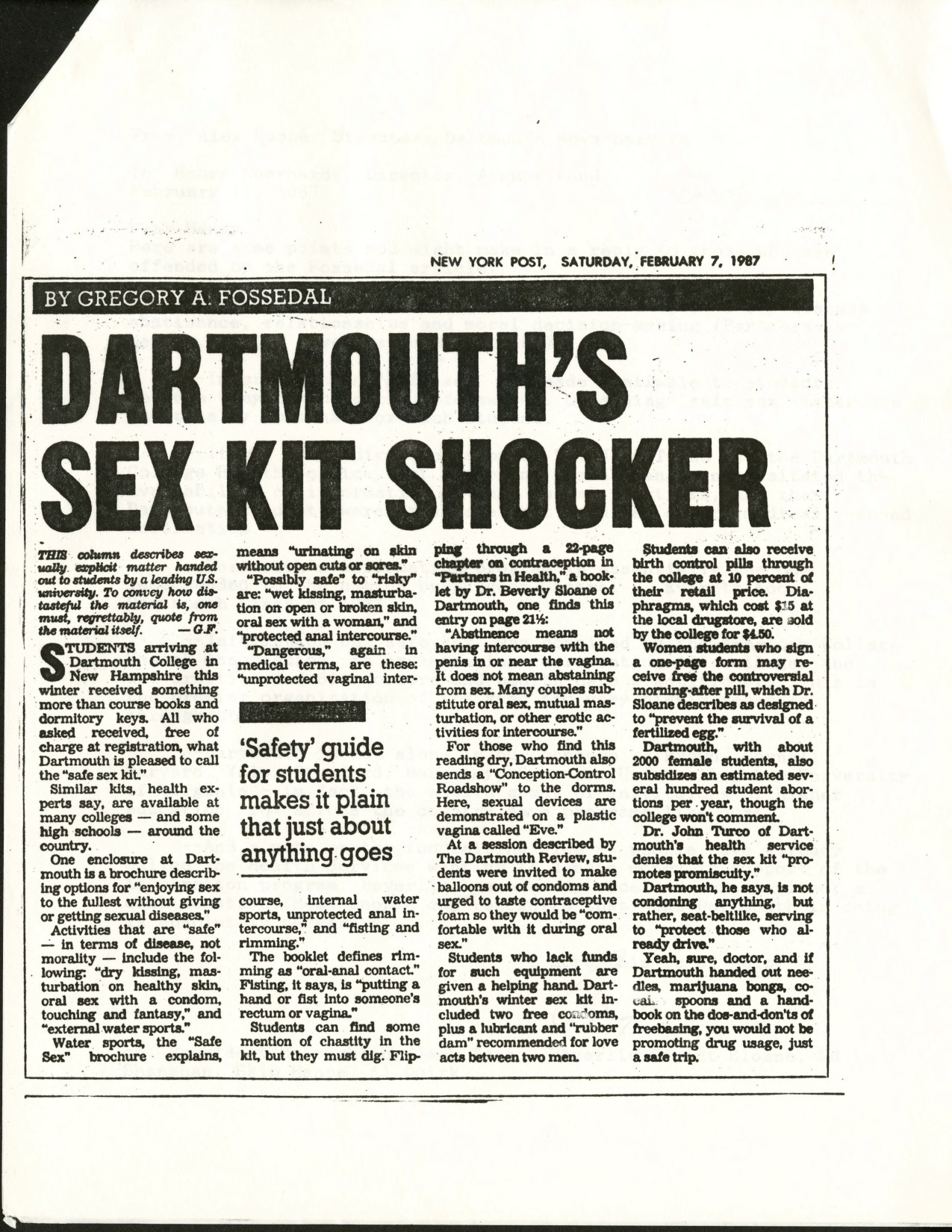
Gregory Fossedal, a founding editor of the Dartmouth Review, discussed the Safer Sex Kits in his article for the New York Post.
 Historical Accountability Student Research Program
Historical Accountability Student Research Program
